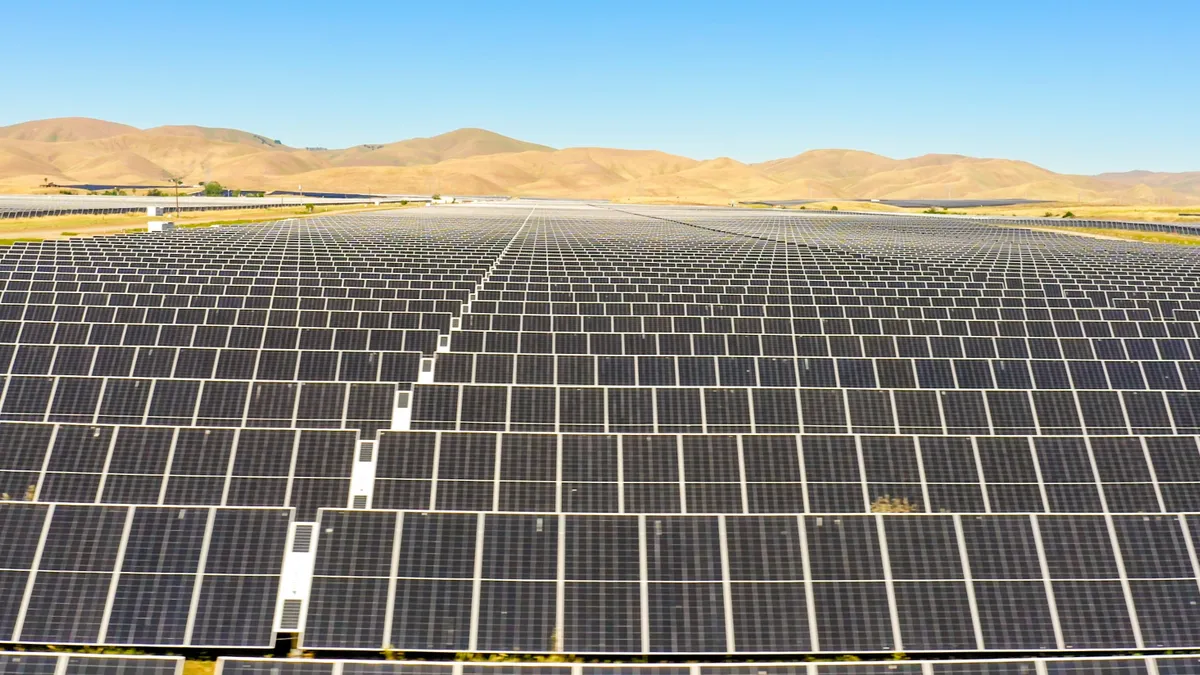Dive Brief:
- Global corporate funding for solar, energy storage and smart grid companies dropped during the fourth quarter of 2024, capping off an all-around slow year for renewable energy financing, according to data from the Mercom Capital Group.
- Venture capital and public market financing took some of the biggest hits, with venture capital down 36% year-over-year in solar and 60% in energy storage as of the end of 2024. Public market financing for solar dropped 59% over the past year amid falling stock prices, according to Mercom.
- The chilly market likely reflects investor uncertainty about how clean energy will fare under the Trump administration — and will likely continue into 2025, according to Mercom CEO and co-founder Raj Prabhu.
Dive Insight:
Investors sat out a larger number of renewable energy deals in 2024 — especially in the latter half of the year — amid political uncertainty and high interest rates, according year-end data from Mercom Capital.
Total corporate funding for solar companies, including venture capital, public market and debt financing, decreased 24% in 2024, raising a total of $26.3 billion across 157 deals compared to $34.4 billion in 161 deals in 2023, according to Mercom. Overall corporate energy storage funding rose 5% year-over-year to $19.9 billion — but Prabhu noted much of the increase could be attributed to a single large deal in the final quarter of the year. Total energy storage funding would have declined were it not for that deal, he said.
Renewable energy funding by venture capitalists saw some of the biggest declines in 2024, likely because investors chose to avoid the sector amid uncertainty around the U.S. election — and later, the potential fate of renewable energy incentives under the Trump administration — Prabhu said. But high interest rates likely played a roll as well.
Interest rates have hit smaller solar installations and rooftop solar companies especially hard. For solar installations larger than 1 MW, total funding was actually up 21% from 2023, according to Mercom Capital.
Both solar and energy storage companies took on more debt in 2024, with solar companies posting a record $5 billion in securitization deals.
“That says more about solar as an asset class. A mature asset class that is an attractive investment,” Prabhu said.
But there were a handful of bright spots in 2024. Mergers and acquisitions within the energy storage sector increased in 2024, and smart grid companies saw venture capital funding rise 13% year-over-year. Most of that funding went to companies making software or providing other services for electric vehicle chargers, Prabhu said.
Investor interest in most renewable energy sectors — including EVs — is likely to decline through the first months of 2025, until the details of the Trump administration's energy policies become more clear, Prabhu said. But some markets, especially energy storage, could pick up later in the year as the new administration settles in.
Energy storage projects, Prabhu noted, look increasingly enticing amid growing electrical demand and renewed focus on grid stability. Energy storage companies have also grown faster than solar companies in recent months, Prabhu said.
“I see much more aggressive forecasting when it comes to energy storage installations in 2025,” he said. “So growth is a little faster in energy storage, and they are key to a lot of energy deals right now.”














